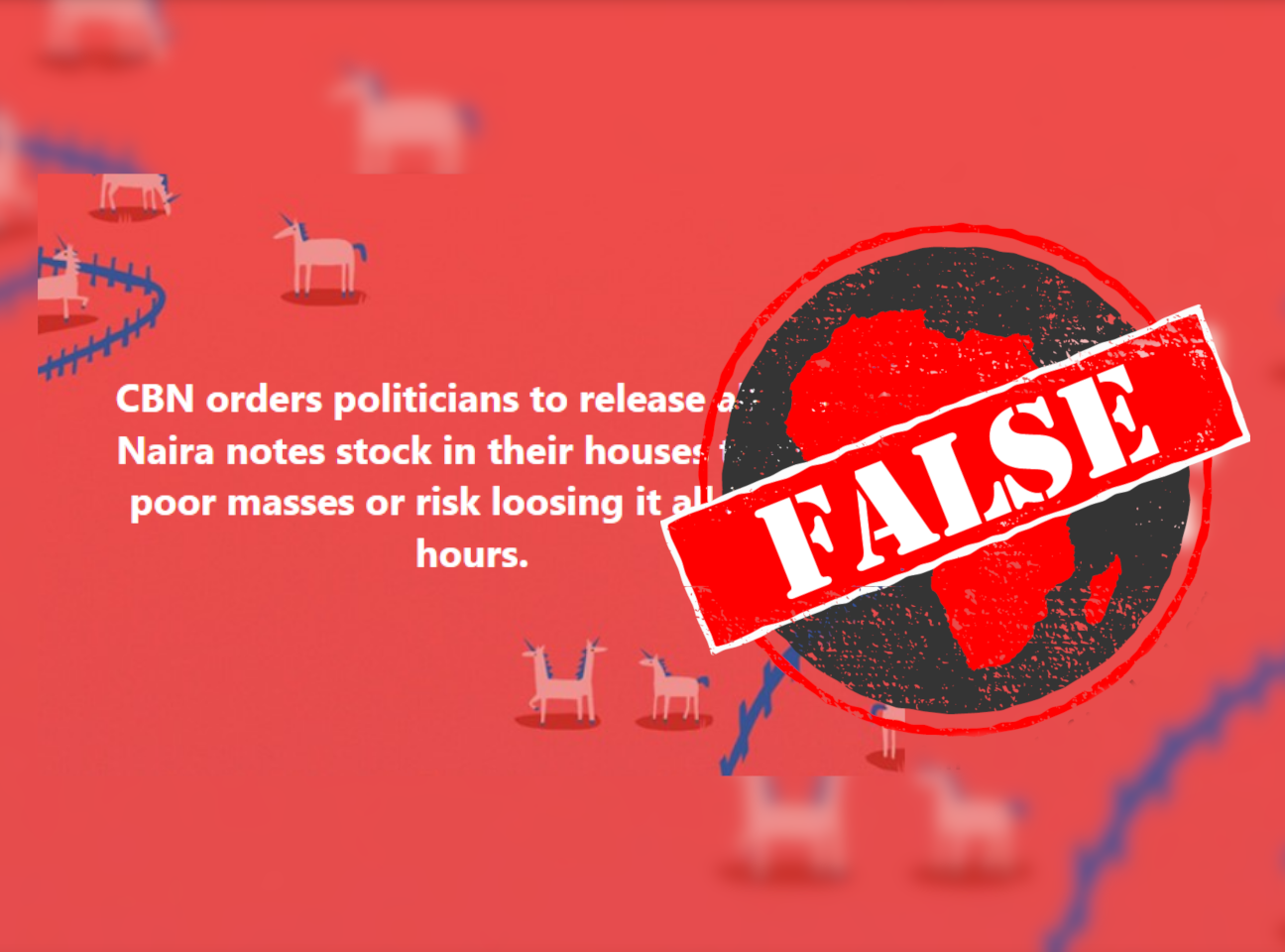IN SHORT: A banknote redesign has caused jitters in Nigeria. But it’s not true that the Central Bank of Nigeria claimed politicians had stashes of the old currency and demanded they be given to the poor – or lose them all.
In November 2022 Nigeria unveiled redesigned currency notes, to presidential fanfare.
But has the central bank ordered politicians to release their old naira notes to the “poor masses” in 24 hours, or risk forfeiting them?
That’s a claim circulating on Facebook in Nigeria. One post reads: “CBN orders politicians to release all old Naira notes stock in their houses to the poor masses or risk loosing it all in 24 hours.”
Central bank governor Godwin Emefiele announced the redesign of the N200, N500 and N1,000 notes on 23 November 2022.
The bank fixed 31 January 2023 as the deadline for old notes to be deposited in banks or exchanged for new ones.
In recent media reports, the bank has maintained its stance on this date, despite calls by Nigerian lawmakers to extend it, and media reporting of shortages of the new currency.
The same claim appeared on Facebook here and here.
But did the bank ask politicians to release old naira notes in their possession to the poor masses or lose them? We checked.

Old notes are to be deposited in banks
Cash is king in Nigeria, especially in election time, while the bank estimates that less than 20% of currency is held by commercial banks.
In a document on its website, the central bank provides answers to various questions about the Naira redesign. It says that all old currency notes should be deposited in banks.
On 20 January , the bank tweeted a graphic on its verified Twitter handle counting down to the 31 January deadline.
"A reminder to the general public that the old series of N200, N500 and N,1000 notes cease to be legal tender by January 31, 2023. You are advised to return them to your bank before the deadline!” it reads.
It does not warn politicians that they could lose their money.
We reached out to the bank spokesperson to verify this claim but were yet to get a response as at the time of writing.
But were such an order made to politicians it would be widely covered. The absence of such reporting is telling as to the accuracy of this claim.
Republish our content for free
For publishers: what to do if your post is rated false
A fact-checker has rated your Facebook or Instagram post as “false”, “altered”, “partly false” or “missing context”. This could have serious consequences. What do you do?
Click on our guide for the steps you should follow.
Publishers guideAfrica Check teams up with Facebook
Africa Check is a partner in Meta's third-party fact-checking programme to help stop the spread of false information on social media.
The content we rate as “false” will be downgraded on Facebook and Instagram. This means fewer people will see it.
You can also help identify false information on Facebook. This guide explains how.


Add new comment